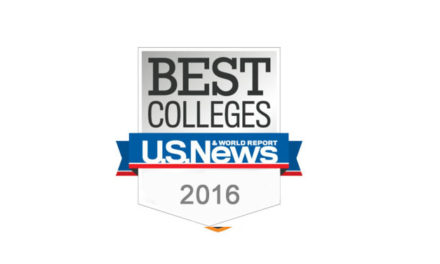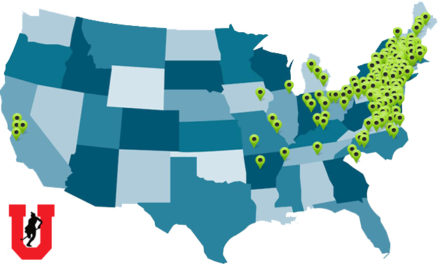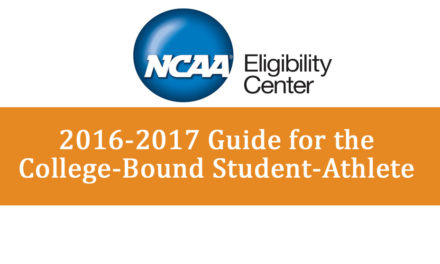June 16, 2014
Source/Author: Bill Vasko (CEO CoachBook and MAXX Athletes)
View Original Article
During the course of my time as a college coach in 3 sports at all of the NCAA levels, I have been asked many questions by parents and high school athletes regarding the recruiting process. What follows are my answers to the most common questions and advice in areas that are most important from the college coach’s perspective.
-
Start early and establish a timeline. Your senior year in high school is too late to begin gathering information on prospective schools or to contact college coaches. Learn as much as you can about the recruiting process and financial aid in your freshman year in high school. See if you can get the loans you’ll need (https://www.sofi.com/student-loan-calculator/ or other services can be very helpful with this). Recruiting for Division I athletes typically begins in an athlete’s freshman year and winds down in their junior year. If you are not a Division I athlete, then you will have until your senior year to make a final decision.
-
Find at least one unbiased person to give you feedback on what level you may be able to play at. Be realistic with yourself about your level of talent and skills. Just because you want to play at the Division I level, doesn’t mean you have the athletic ability to do so.
-
Parents should be there to help their child through the process, but should not do the bulk of the work. Understand your child’s capabilities and work style. Some kids will handle the bulk of the college search and look to the parent mainly for approval and support. Others may need more support or guidance from their parents. Let your child make decisions. This is one of their first opportunities to make adult choices, and they must live with the outcomes.
-
Exposure is key. Attend as many events as possible within your budgetary constraints…..tournaments, showcases, camps, clinics…..find out where the coaches you want to perform for are going to be, and let them know that you will be in attendance. Quite often however, a coach that you don’t know will discover you and then reach out to you. That’s why maximum exposure is key.
-
You do not need to spend a lot of money on a recruiting service. You need to have a basic video and a profile or website available online. However, the athlete, with some help from the parents, can do the promotional work themselves.
-
Introduce yourself. An introduction email is very important–make this letter something personal. Do not send a cut and paste email to every coach. Take time to personalize it to those programs you are interested in. Make sure that you spell the coach’s name and the school’s name correctly!!!
-
Do not harass or stalk a coach. Stay in touch with them, drop them an occasional email to let them know of your interest. Do not hunt them down at tournaments or recruiting events (or follow them to the porta-john…..true story). Understand the limitations that a college coach has regarding when they can contact you and by what means. Coaching is a full-time job. There is a difference between contacting college coaches and showing interest, and the other side, which is being a obnoxious and overbearing. Do not contact a coach more than once week. Once every 2 weeks is ideal. The best way to contact them is via email. If a college coach does not make an effort to contact you or your coach by phone or email and does not ask you to visit campus, they are not interested in you. Do not take it personally-move on and find a program that IS interested in you. College coaches will make decisions based upon what they feel is in the best interest of THEIR program.
-
If you are visiting a campus on your own, feel free to stop by the coach’s office to introduce yourself and leave your profile. Do not, however, expect a coach to take time from their busy schedule to sit down and talk to an athlete and their parents whom they don’t know much about or may not have an interest in recruiting. Be respectful of their time.
-
Your parents should be involved in the recruiting process. However, they should not be contacting college coaches by email or phone on your behalf. The coaches are recruiting the athlete, not the parent. The quickest way to be crossed off a coaches recruiting list is to have an overbearing parent, no matter how good of a player you are.
-
Play as many sports as possible and participate in as many activities as possible. Coaches want well-rounded athletes and people. Take time away from your primary sport. Overuse injuries are extremely common once an athlete reaches the college level. Give your body time off to heal, rest, and recuperate. If you’re finding yourself or you’re child is in pain and is suffering from some sort of injury before reaching college level, it’s important that they recuperate before recruitment and before the problem turns chronic. You can learn more about particular injuries and treatment methods at the Medical City Children’s Orthopedics and Spine Specialist’s website.
-
Get involved in a strength, speed, and conditioning program during your freshman year in high school. Find someone who is knowledgeable in working with athletes. Most athletes are shocked at how much strength training they do when they get to college. Also, many of them do not know how to squat, deadlift, clean, or press properly. If you can learn these things, you will have an advantage over other athletes in many regards. Let college coaches know what type of workouts you are doing-it is an important recruiting point for many college coaches. Prior to your freshman year in high school, get involved in bodyweight training and start learning the movements of the primary exercises that you will perform once your body is physically ready.
-
Take care of your body. Proper nutrition and sleep habits, as well as time management skills, are important tools for a college athlete. Learn those skills at an early age. Avoid alcohol and drugs. While products like CBD oil can help their performance (see cannabisnow.com/can-cbd-help-supercharge-athletic-performance/), drugs like ectasy can derail their career. In my opinion, alcohol use is one of the top problems facing collegiate athletes. Perhaps, with this in mind, it is a good idea to cover yourself and compare sports insurance policies for college students at Squarepeg Insurance.
-
Be mindful of what you do away from the field-college coaches are watching everything. They watch the way you warm up, how you interact with coaches and teammates on the sideline, how you act and treat your parents away from the field…….they also monitor your online activities-Facebook, Twitter, Instagram……if all of your social media accounts are locked, then a coach may wonder what you are hiding. So keep them public, and keep them clean.
-
Base your decision on the academics, the financial aid package, and the athletic program. Do not base your decision on the coach. Chances are, the coach may not be there all 4 years while you are attending the school, especially if you are verbally committing early in your high school career. Also, if something happens-a coaching change, a career ending injury-will you still be happy that you chose that school? Think beyond sports, and think about what the school offers you in the terms of an education and affordability.
-
Do not be fooled by the inclusion of loans in your financial aid package. A coach may tell you that you don’t have to pay anything to attend their school. But if there are loans in your financial aid package, you have to pay those back at some point. Run away very fast if a coach tries to mislead you in this way. Take the TOTAL cost of attending the school, then subtract federal grants, academic scholarships, athletic scholarship, other scholarship money-this is what you will have to pay to attend the school.
-
If you accept an athletic scholarship, be prepared to work for it once you get to college. Many non-athlete students have to work while attending college to help pay for their schooling. When you receive athletic money, you are being paid for your services as an athlete. This will require a lot of hard work and a great deal of time. If you are not prepared to put in the sacrifices, then you need to re-think why you are considering on becoming a college athlete. If it is something that your parents are pressuring you into, then save everyone involved a lot of headache and hassle and do not pursue athletics at the college level. Ask yourself this question – “Why do I want to be a collegiate athlete?” Answer it honestly.
-
Above all else, your grades are the most important aspect of the recruiting process. Most likely, you will get more scholarship money for your grades than you will for your athletic abilities. If you have good grades and test scores, you automatically become more valuable to a college coach. The less athletic money they have to spend on you, the more valuable you are. It is rare for an athlete to get a “full ride” that is made up entirely of athletic scholarship money, especially in non-revenue sports. Most financial aid packages for athletes are a combination of federal grants, academic scholarships, and athletic money. A college coach has to break up their athletic money to bring in as many good players as possible. If they can spend less athletic money to bring in a good player, it becomes a no-brainer for them. Also, an athlete that has good grades in high school is less likely to be an academic problem in college. Not only do poor grades decrease your chances at receiving an excellent financial aid package, it throws up red flags of a potential headache for the college coach once you are on campus.
To learn more, visit https://www.maxxathletes.com





